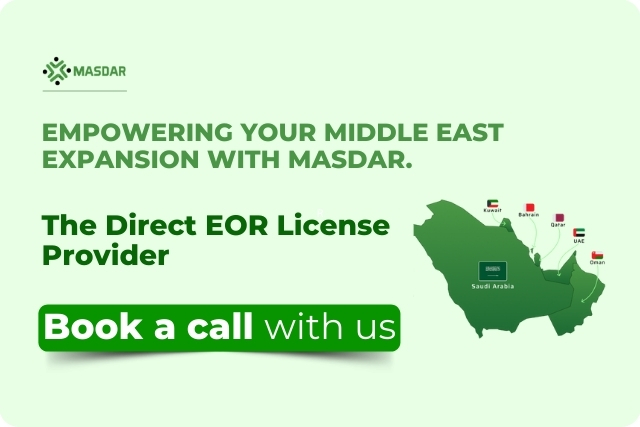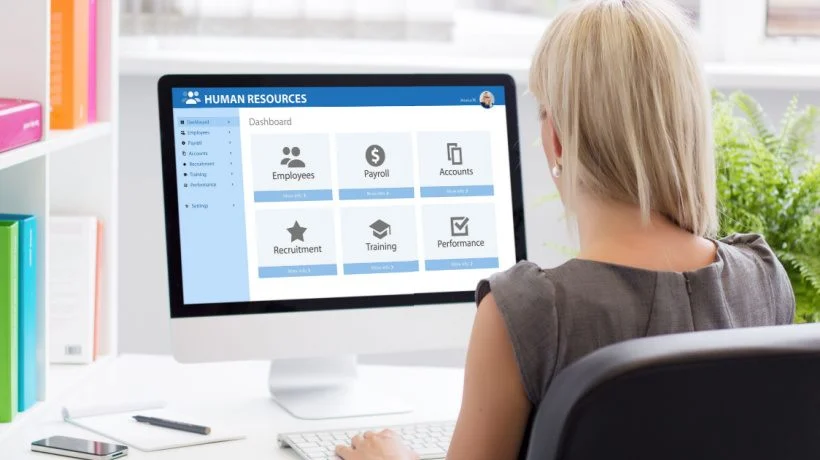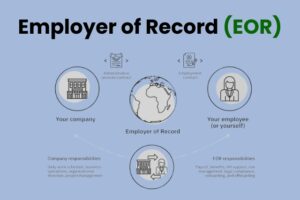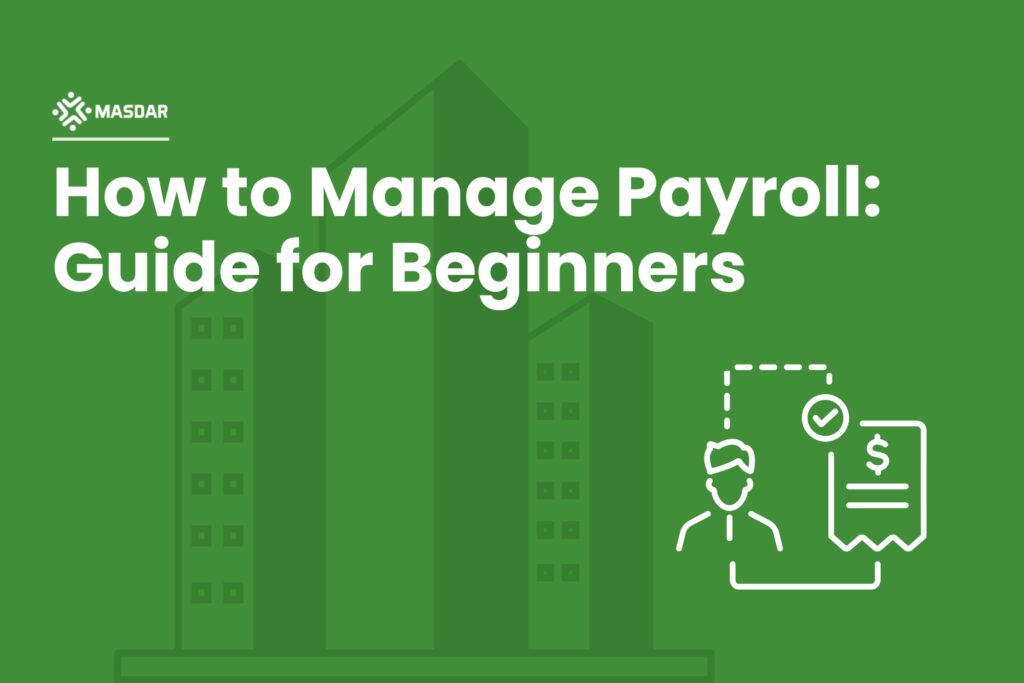Let’s talk payroll. If you’re looking to expand your business, especially into the dynamic GCC region (that’s the UAE, Saudi Arabia, Qatar, Bahrain, Oman, and Kuwait), getting payroll right is absolutely crucial. And let’s be honest, it can feel like a bit of a minefield, right?
You’re not alone in thinking that. Many businesses, especially when they’re growing or venturing into new territories, find payroll a tricky beast to tame. Inaccurate wages or late payments? That’s often down to payroll management not quite being up to scratch. If you’ve just brought on your first team members in the GCC or your trusty spreadsheets are starting to groan under the pressure, you might be wondering where to even begin.
That’s where we, Masdar EOR, come in. Think of us as your on-the-ground payroll gurus in the GCC. We’ve got the direct Employer of Record (EOR) licenses across these countries, which means we’re not just another layer – we are the local experts. This guide is all about sharing some of that know-how, helping you understand the basics of setting up and running smooth, accurate payroll, particularly with a GCC flavour.
So, What Exactly is Payroll ManagemSent?
At its heart, payroll management is all about handling your employees’ financial records. This covers everything from their salaries and benefits to taxes and any other deductions. It means calculating what everyone’s due, making sure they get paid, keeping meticulous records, and handling all the necessary tax and social security paperwork. This is super important in the GCC, where each country has its own specific labour laws and contributions to consider.
Businesses tackle this in a few ways: some still use manual methods or spreadsheets (brave souls!), while many opt for payroll software. Then there are companies that choose to outsource to payroll specialists, like us at Masdar EOR. When you partner with an EOR like Masdar EOR, especially one with direct licenses in the GCC, you’re essentially handing over the complexity to a team that lives and breathes this stuff daily.
For a CFO juggling multiple entities across the GCC, it can quickly become a headache trying to consolidate payroll data from different local providers, often dealing with various formats and trying to get a clear view of things like GOSI in Saudi Arabia or pension contributions in the UAE.
With Masdar EOR, we bring it all together, giving you a unified view and handling the nitty-gritty for all your employees in the region.
Types of Payroll Schedules
You’ll generally come across a few common payroll schedules:
- Weekly: Paying your team on a set day every week.
- Bi-weekly: Paying every two weeks on the same day.
- Semi-monthly: Paying twice a month, usually on fixed dates (e.g., 15th and 30th), making it 24 paychecks a year.
- Monthly: Paying once a month, often on the last day. This is the most common approach in the GCC region.
Your company’s cash flow, what’s standard in your industry, and, importantly, local labour laws in each GCC country will influence which schedule you adopt. For instance, the Wage Protection System (WPS) in countries like the UAE and Saudi Arabia mandates timely payment, often on a monthly basis.
The Three Key Stages of Payroll Management
Payroll isn’t just about hitting ‘send’ on the payments. There’s a whole process, which we can break down into three main phases:
- Pre-payroll:
This is all about prep work. You’re gathering and double-checking all the essential info. For each employee, this includes:
- Hours worked (especially for hourly staff, though less common for salaried roles in GCC).
- Any bonuses or commissions.
- Changes in salary or allowances (like housing or transport, common in the GCC).
- Deductions (e.g., social security contributions like GOSI/GPSSA, loan repayments) and benefits.
- Any updates to personal details or banking information. Once this is all collated and verified, you’re ready to calculate and run payroll.
- Payroll Processing:
Now the calculations happen. You’ll figure out each employee’s gross pay. Then, you’ll deduct any contributions (like social security, which varies across GCC countries) and other withholdings. What’s left is the net pay – the amount that lands in your employee’s bank account.
In this phase, you’ll also account for any employer-levied payroll taxes or contributions. In the GCC, this primarily involves employer contributions to social security schemes.
- Post-payroll:
After payments are made, it’s about wrapping things up neatly. This means sorting out any queries on payslips, securely storing all your payroll records (which is a legal requirement!), and updating any employee data or tax forms before the next pay cycle kicks off. It’s also when you’d handle things like end-of-service gratuity calculations and payments when an employee leaves.
Key Tasks in Managing Payroll
Let’s drill down into some of the essential tasks involved across those three phases:
- Calculating Employee Wages: Getting this right is non-negotiable. Salaried employees in the GCC will generally have a consistent monthly paycheck based on their contract, which often includes basic salary plus allowances. For any staff paid hourly, precise tracking of hours is key, including any overtime, which is regulated by GCC labour laws.
- Payroll Contributions & Deductions: This is a big one in the GCC. After gross pay, you’ll handle deductions for things like employee contributions to social security (e.g., GOSI in KSA, GPSSA for UAE nationals). There aren’t income taxes on salaries for most employees in the GCC, which simplifies things compared to other regions, but ensuring correct social security calculations and payments is vital.
- Sending Payments to Employees: Once deductions are sorted, employees get their net pay. Direct bank deposits are the standard, and systems like the Wage Protection System (WPS) in the UAE and KSA ensure payments are made through approved channels. For your international team members within the GCC, Masdar EOR ensures seamless and compliant payments.

- Providing Pay Stubs: Employees need a clear breakdown of their pay. Pay stubs detail gross pay, allowances, deductions, and net pay. This transparency is important and often a legal requirement.
- Payroll Record-Keeping: GCC labour laws mandate that employers keep detailed payroll records for a specific period, even for ex-employees. Failing to produce these during an audit can lead to penalties. Using a secure system (like ours at Masdar EOR!) helps keep these records safe, organised, and compliant.
10 Tips for Smooth and Accurate Payroll Management (GCC Focused!)
As your business in the GCC grows, payroll can get more complex. Setting up a solid system early on will save you a world of pain.
- Block Out Enough Time: Don’t underestimate the time needed for payroll, especially with varying regulations across the six GCC states. Give yourself ample time to review everything.
- Use Calendar Alerts: Set reminders for critical payroll dates – paydays, social security contribution deadlines, and any other local requirements. A shared calendar can also keep your team informed.
- Document Your Processes: A clear, documented payroll process is invaluable, especially for auditing and onboarding new payroll staff. Given the nuances in each GCC country, this is even more critical.
- Keep Your Team (and Yourself!) Updated: Payroll rules and systems evolve. Ensure whoever is handling payroll stays current with GCC labour laws and best practices. And make sure your employees understand the payroll basics and the importance of submitting any required info on time.
- Plan for All Compensation: Payroll isn’t just basic salaries. Think about bonuses, commissions, end-of-year payouts, and the all-important end-of-service gratuity calculations which are a legal requirement in the GCC.
- Keep Employee Data Fresh: Addresses, bank details, visa statuses – these things change. Regularly verify employee information to avoid payment hiccups.
- Choose a Scalable Solution: Opt for a payroll system or partner that can grow with you. Switching systems is disruptive. Masdar EOR is built to scale with your GCC expansion.
- Listen to Your Employees: Check in with your team. Is the payroll process clear to them? Their feedback can highlight areas for improvement and help ensure they feel confident they’re being paid correctly and on time.
- Outsource to Experts in the GCC: This is where Masdar EOR shines. Outsourcing your GCC payroll to us, with our direct EOR licenses, saves you time, ensures compliance with local laws (which can be tricky!), and takes a major task off your plate. It often costs less than hiring a dedicated in-house team for multiple GCC countries.
- Lean on Your Local EOR Partner (That’s Us!): As your EOR in the GCC, Masdar EOR has the in-depth local knowledge. We understand the specific regulations, from WPS compliance to calculating social security and end-of-service benefits in Saudi Arabia, the UAE, Qatar, Bahrain, Oman, and Kuwait. This local insight can be invaluable.
Managing Payroll for Your GCC Team

Running payroll across different GCC countries means navigating a unique set of employment laws and tax (mainly social security) regulations for each. If you’re hiring in the GCC, Masdar EOR offers a streamlined path:
- The Challenge: Setting up local entities in each GCC country is time-consuming and expensive. Trying to manage payroll yourself means becoming an expert in six different sets of labour laws, social security systems, and processes like the Wage Protection System (WPS).
- The Masdar EOR Solution: With our Employer of Record (EOR) services, you sidestep these hurdles. We act as the legal employer for your team in Saudi Arabia, the UAE, Qatar, Bahrain, Oman, and Kuwait. Because we hold direct EOR licenses in these countries, we handle all aspects of payroll, benefits, and compliance according to local laws. This means you get:
- Full Compliance: Peace of mind that you’re meeting all local regulations.
- Data Security: Robust protection for sensitive employee information.
- Streamlined Process: One point of contact for your entire GCC payroll.
- Local Expertise: Deep understanding of nuances like end-of-service gratuity, leave policies, and social security contributions (like GOSI in KSA or GPSSA for UAE nationals).
What to Look for in a Payroll Management System (Especially for the GCC)
When you’re evaluating a payroll solution, particularly for the GCC, keep these features in mind, all of which are core to Masdar EOR’s service:
- Scalability: Can it handle your growth from a few employees to a larger regional team?
- Expert GCC Support: Access to knowledgeable support that understands the specific payroll and HR landscapes of Saudi Arabia, the UAE, and other GCC countries.
- Compliant Payment Options: Ensures payments are made according to local regulations, including WPS where applicable.
- Data Protection: Robust security measures to protect sensitive employee data, in line with local data protection laws.
- Self-Service (where appropriate): Features that allow employees to access their payslips and update certain information can be a plus.
- Integrated GCC Payroll: A system or service that seamlessly manages payroll across all GCC countries you operate in. Masdar EOR provides this unified approach.
5 Big Wins from Using an Expert EOR Payroll Service like Masdar EOR
While some might still be tempted by manual methods, especially for a small team, the risks of errors can be costly, both in terms of fines and employee trust. Here’s why partnering with a specialist EOR for payroll in the GCC, like Masdar EOR, makes sense:
- Manage Finances Accurately: We ensure precise calculations of salaries, allowances, deductions, and end-of-service benefits, reducing errors that can lead to unhappy employees or compliance issues.
- Save Time and Resources: Let us handle the complexities of GCC payroll. This frees up your internal teams to focus on your core business, rather than getting bogged down in payroll admin across multiple countries.
- Avoid Late Payments and Errors: Timely and accurate payments are crucial for employee morale and retention. Our streamlined processes and understanding of local payment systems (like WPS) ensure this.
- Automatically Handle Contributions: We manage the correct calculation and remittance of all mandatory employer and employee social security contributions in each GCC country.
- Keep Sensitive Data Secure: We use secure systems to manage and protect your employee and payroll data, adhering to local data privacy regulations.
How Masdar EOR Helps Companies Thrive in the GCC

Imagine a tech company looking to expand its sales team across the UAE, Saudi Arabia, and Qatar. Before partnering with Masdar EOR, they faced the daunting prospect of setting up legal entities in each country, hiring local HR/payroll staff, and navigating three different sets of complex labor laws. It was a significant barrier to their expansion plans.
By engaging Masdar EOR, they were able to onboard their new team members quickly and compliantly in all three countries. We handled employment contracts, managed payroll (including all local allowances and deductions like GOSI and pension contributions), ensured WPS compliance, and provided ongoing HR support. The result? The company could focus on its growth strategy, knowing that its GCC payroll and HR obligations were in expert hands. They got the peace of mind that everyone was being paid accurately, on time, and in full compliance with local laws, all through a single point of contact.
Frequently Asked Questions About Payroll Management
Here are a few common questions we hear:
- What are the main duties of a payroll manager? A payroll manager ensures all employee data for payroll is correct, processes payments accurately and compliantly, maintains payroll records, and generates reports. In the GCC context, this also means staying on top of specific local regulations, visa-related information, and end-of-service gratuity calculations.
- What’s HR’s role in payroll? In smaller companies, HR might manage payroll directly. In larger ones, payroll might be a separate function or outsourced. HR is typically involved in providing employee data (new hires, salary changes, leavers) to the payroll function and handling queries related to pay and benefits.
- How do I get started with payroll for my GCC employees? To prepare for payroll in the GCC:
- Ensure you have the correct legal setup to employ staff (or partner with an EOR like Masdar EOR, who handles this).
- Gather all necessary employee documentation (contracts, visa details, bank information, social security numbers where applicable).
- Understand the specific payroll schedule and requirements (e.g., WPS) for each GCC country you operate in.
- Accurately calculate salaries, allowances, and any deductions.
- Process payments through compliant channels and provide payslips. Of course, the easiest way is to talk to us at Masdar EOR!

Click here
- What is full-cycle payroll processing? This refers to all the steps involved in processing your payroll from the end of one pay period to the end of the next. It includes data collection, calculation, payment disbursement, tax/contribution remittance, and record-keeping.
Make GCC Payroll Management Effortless with Masdar EOR
Managing payroll, especially across multiple GCC countries, definitely has its challenges. But with proper planning, leveraging local expertise, and smart automation, you can ensure accuracy and a positive experience for your employees.
With Masdar EOR, you get a dedicated partner with direct licenses and deep expertise in the UAE, Saudi Arabia, Qatar, Bahrain, Oman, and Kuwait. We manage your complete local payroll, pay your team with a single instruction from you, and ensure you’re always fully compliant with all local tax and employment laws.
Ready to simplify your GCC expansion? Let’s talk about how Masdar EOR can take the complexity out of your regional payroll.


